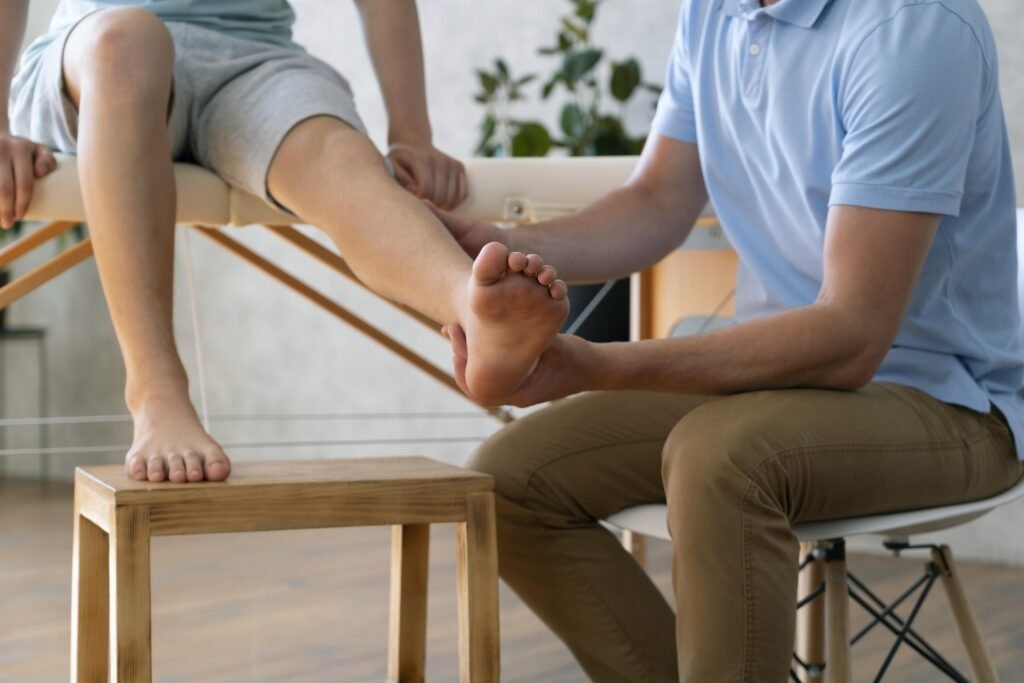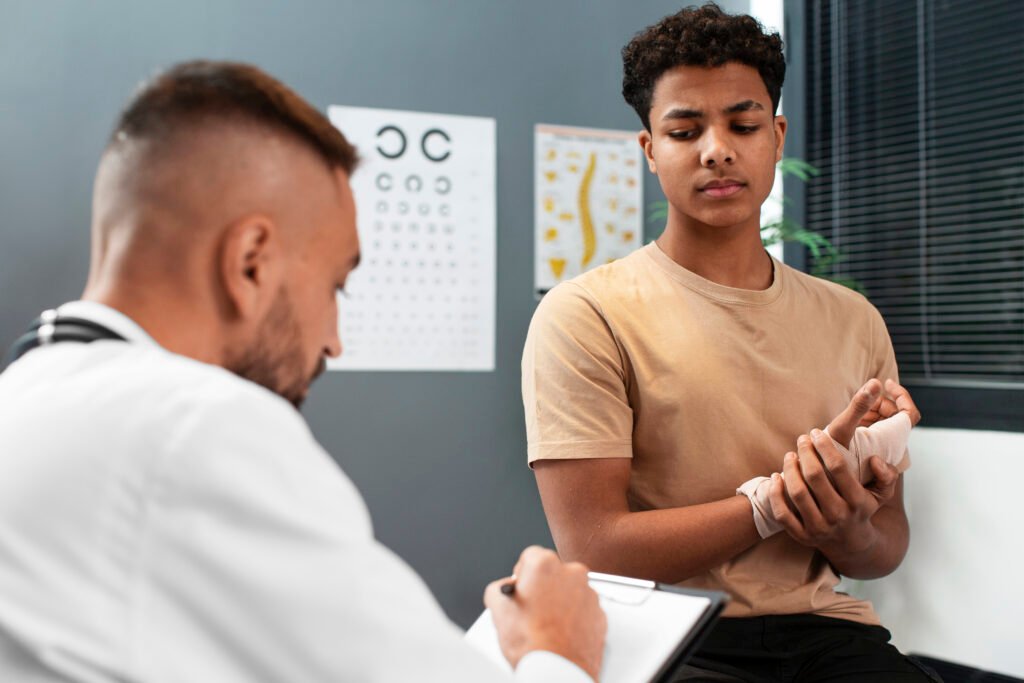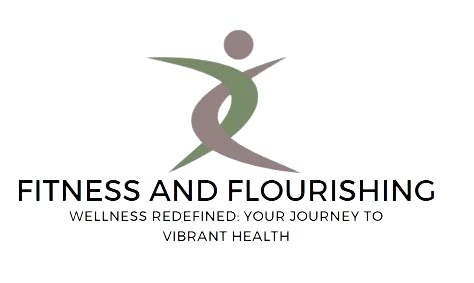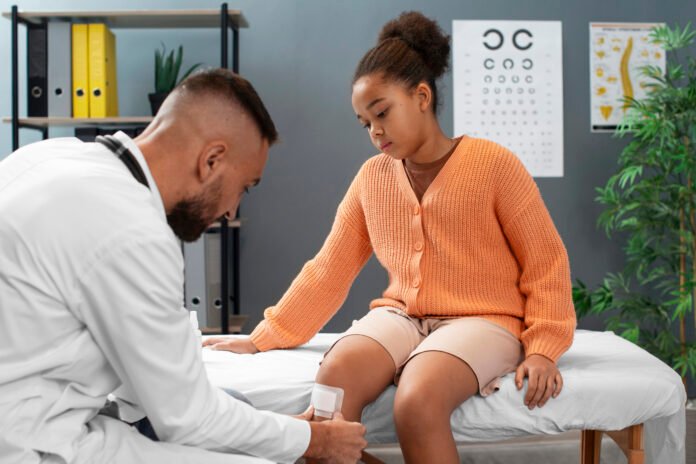Scrapes, cuts, and minor wounds are a common part of life. While our bodies are amazing at healing themselves, there are ways to give them a natural boost. In this blog, we’ll explore 7 of the best tips on how to heal wounds naturally, helping you get back on your feet quicker. From proper wound care to dietary choices, we’ll cover everything you need to know to optimize your body’s natural healing process.

1. Know The causes Of Chronic Wounds
Several factors can hinder wound healing and lead to chronicity. Here’s a breakdown of some common culprits:
Poor Circulation:
Reduced blood flow, particularly in the legs, deprives the wound of vital oxygen and nutrients for repair. How to heal wounds faster naturally?. Focus on improving blood circulation. Exercise regularly, elevate affected limbs, and maintain a healthy weight.
Diabetes:
Nerve and blood vessel damage caused by diabetes can contribute to poor circulation and chronic wounds. How to heal wounds faster naturally? Manage your diabetes effectively with medication, diet, and exercise.
Infection:
Bacterial invasion can prevent healing and even worsen existing wounds. How to heal wounds faster naturally? Keep wounds clean and covered with sterile dressings to prevent infection.
Pressure Ulcers (Bed Sores):
Constant pressure on the skin, especially in bedridden individuals, can cause these wounds. How to heal wounds faster naturally? Relieve pressure frequently by shifting positions and using pressure-relieving devices.
Venous Insufficiency:
This condition weakens the veins’ ability to return blood to the heart, leading to leg swelling and increasing the risk of chronic wounds. How to heal wounds faster naturally? Elevate your legs when resting, and wear compression stockings to improve circulation.
Autoimmune Diseases:
When the body’s immune system attacks healthy tissues, it can affect skin health and wound healing. How to heal wounds faster naturally? Consult your doctor for proper management of your autoimmune disease.
2. Know Additional Barriers to Wound Healing:
Malnutrition:
Lack of essential nutrients can slow down the healing process. Ensure a balanced diet rich in vitamins and minerals.
Obesity:
Excess weight puts pressure on the skin, increasing the risk of chronic wounds. Maintaining a healthy weight can be beneficial.
Smoking:
Smoking constricts blood vessels and reduces blood flow, hindering wound healing. Quitting smoking is crucial for faster healing.
Certain Medications:
Corticosteroids, for example, can slow down wound healing. Discuss alternative medications with your doctor, if possible.
Varicose Veins:
Weakened and enlarged veins can contribute to chronic wounds. Consult your doctor about treatment options for varicose veins.
Dryness:
Dry wounds heal slower. Keep wounds moist with proper dressings and hydration.
3. The Healing Process
Wound healing is a complex process involving several stages:
- Inflammation: The body’s initial response to injury, involving swelling and redness to fight infection and prepare for healing.
- Proliferation: New skin cells and blood vessels form to close the wound.
- Remodeling: Collagen strengthens the newly formed tissue, improving wound integrity.
4. How To Heal Wounds Faster Naturally
While some chronic wounds require medical intervention, here are some natural ways to support wound healing:
Diet:
Focus on a balanced diet rich in protein, vitamin C, zinc, and other essential nutrients to support tissue repair.
Hydration:
Drink plenty of water to stay hydrated and facilitate cell function during wound healing.
Rest:
Allow your body ample rest to prioritize healing.
Stress Management:
Chronic stress can hinder healing. Practice relaxation techniques like yoga or meditation.
Topical Treatments:
Consider natural options like aloe vera gel, known for its soothing and healing properties (consult your doctor before using).
5. Diagnosis And Treatment
If you suspect a chronic wound, consult a doctor for proper diagnosis and treatment. Depending on the cause, treatment options might include:
- Debridement (removal of dead tissue)
- Antibiotics (for infection)
- Skin grafts
- Compression therapy
- Surgery (in severe cases)
6. Self-Care Suggestions
Wound Care: Clean and dress wounds regularly, as directed by your doctor.
Monitor Progress: Watch for signs of infection like redness, swelling, or pus.
Wear Appropriate clothing. Loose-fitting clothes prevent irritation and promote healing.
7. When To See A Doctor
See a doctor promptly if you experience:
- Wounds that don’t heal within 3–4 weeks
- Signs of infection (redness, swelling, pus)
- Increased pain
- Excessive bleeding
By understanding the causes and promoting natural healing strategies, you can support your body’s ability to heal wounds faster and avoid potential complications. Remember, early diagnosis and proper medical care are crucial for managing chronic wounds effectively.

FAQs
How do you heal a wound quickly?
Clean the wound, keep it moist with ointment, eat healthy, stay hydrated, rest, and avoid smoking. See doctor for serious wounds.
How do cure wounds?
Wounds don’t get “cured,” but heal. For minor wounds: clean, moist dressing, eat healthy, rest, see doctor for serious wounds.
Is necrosis a wound?
Necrotic wounds are a serious and challenging type of injury characterized by dead or devitalized tissue. These wounds can arise from various causes, such as severe infections, vascular disorders, pressure ulcers, and complications following surgical procedures.
How can we prevent wound infections?
- Here are some tips to prevent wound infections:
- Clean the wound with mild soap and water.
- Apply antibiotic ointment and cover with a bandage.
- Change the dressing daily, and keep the wound clean and dry.
- Avoid picking at the scab.
- See a doctor if you notice redness, swelling, or pus.


